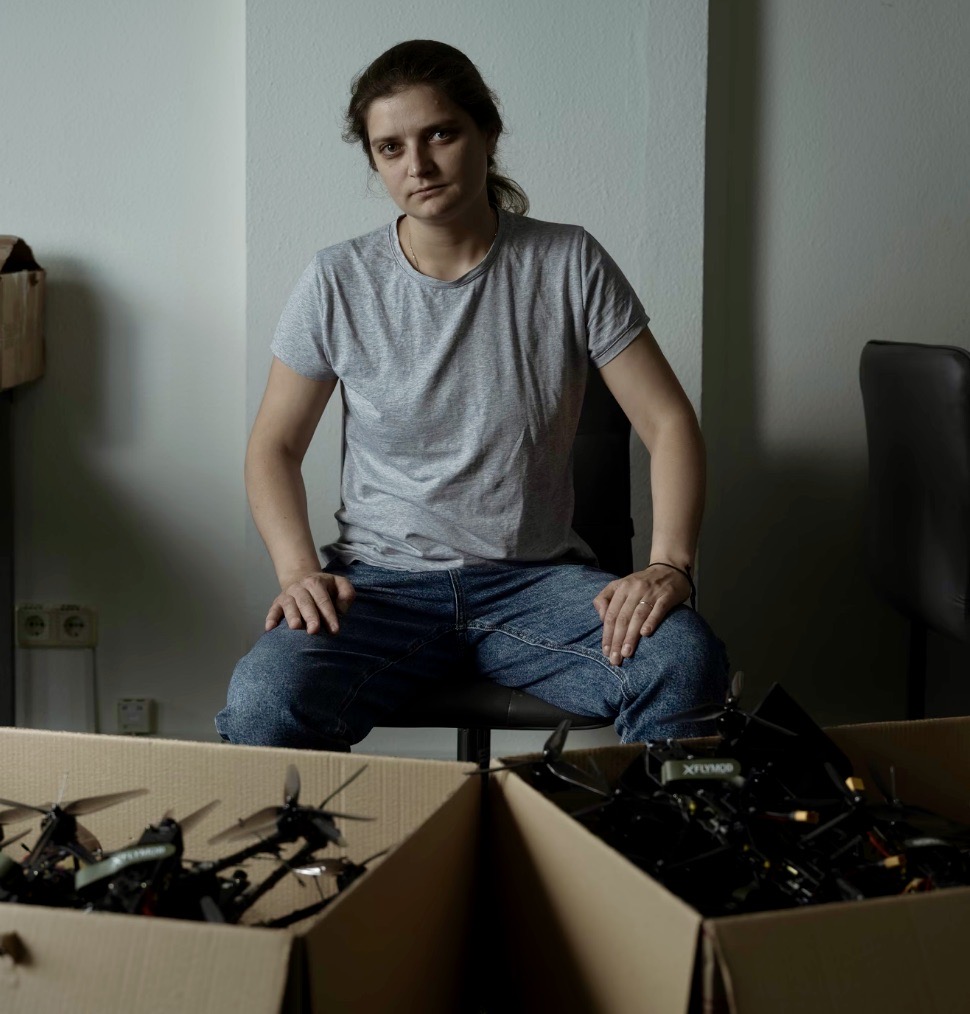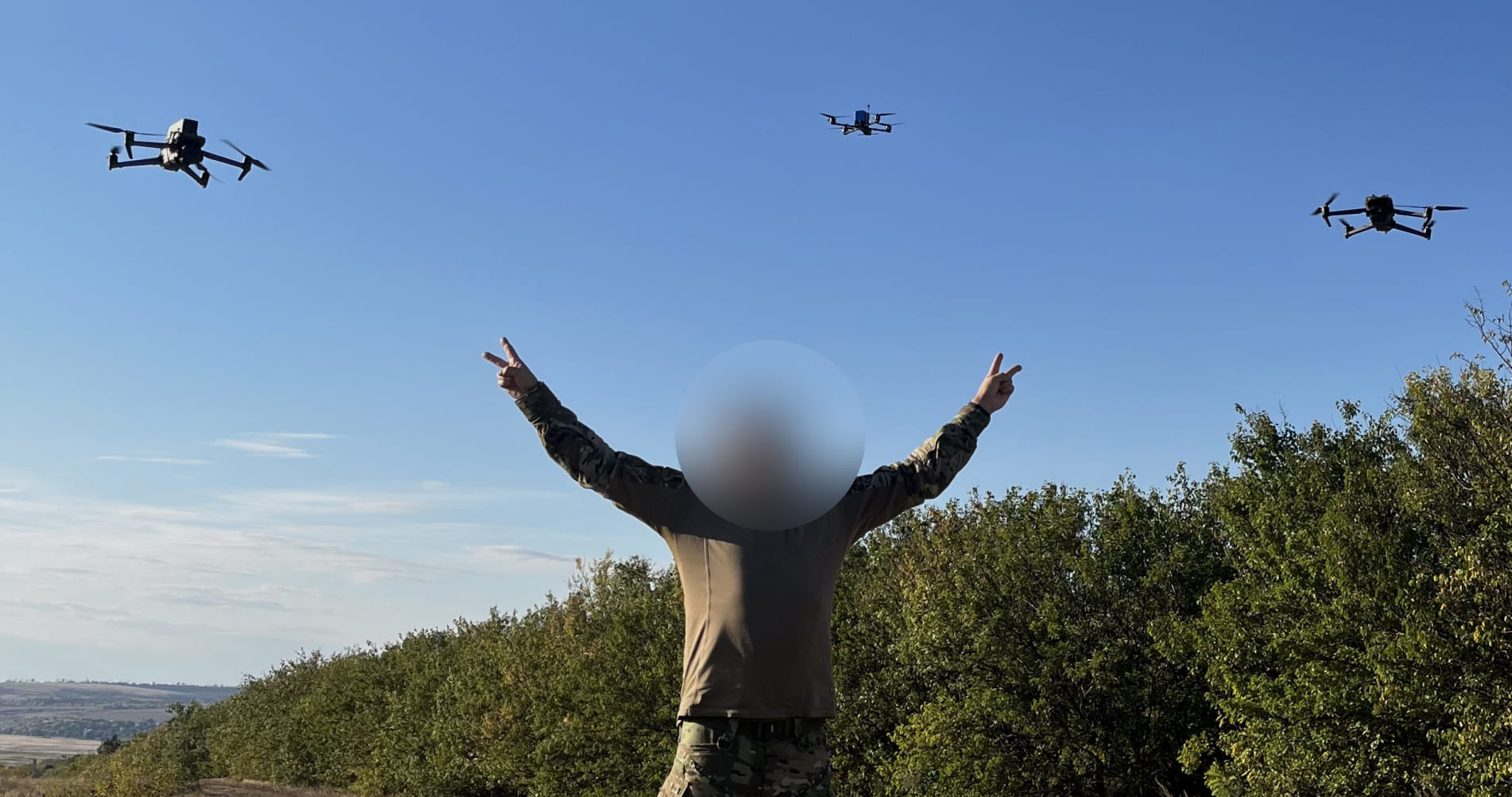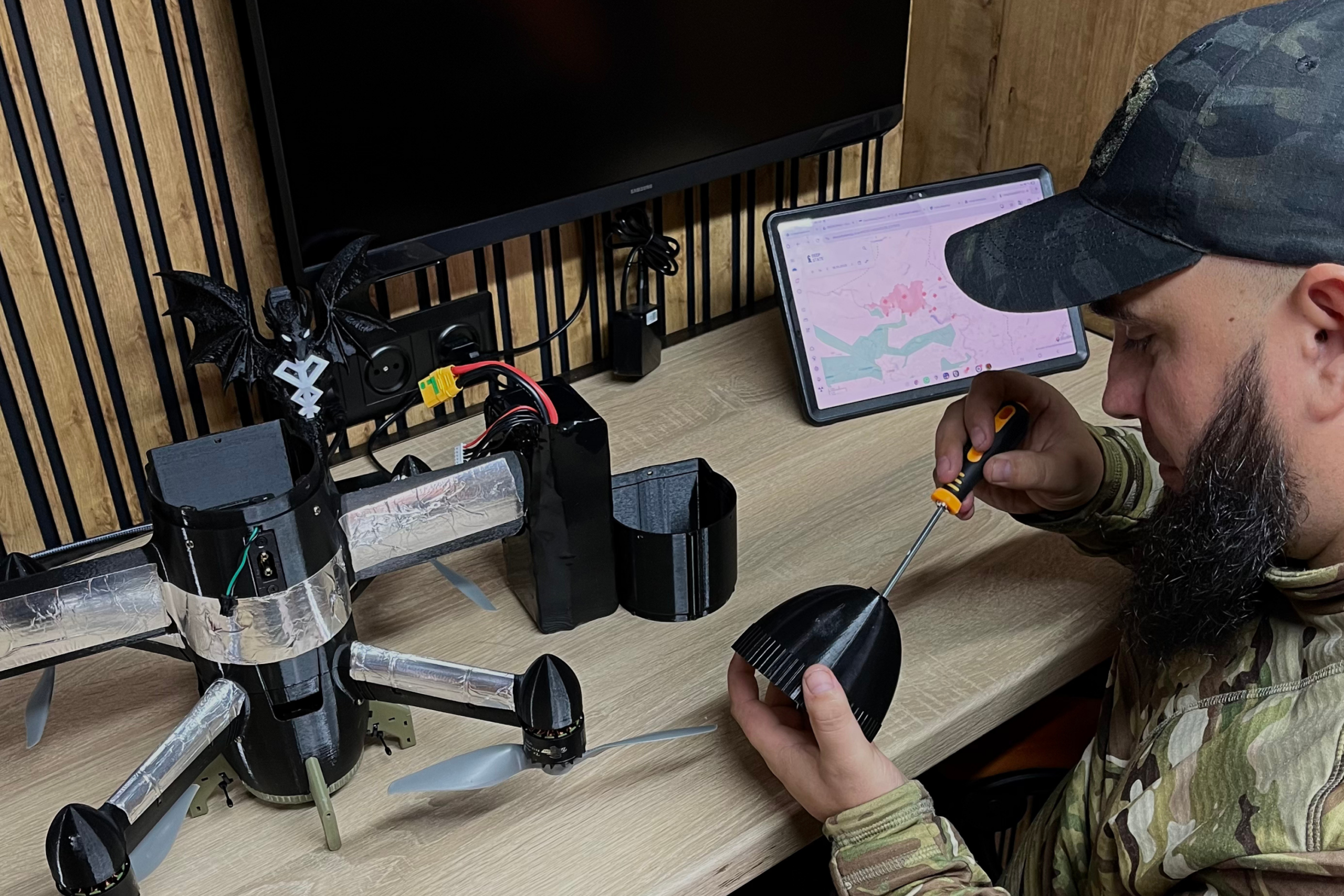This article excerpt is from Ukraine’s Hardest Winter by Robert Forsyth Worth, originally published on The Atlantic.
Weary soldiers and citizens express fatalistic optimism while preparing for the loss of U.S. military support.
By Robert F. Worth
Photographs by Sasha Maslov
… Sooner or later, some Ukrainians say, the country will have to rely entirely on its own resources. Trump may just be hastening that day. One Ukrainian who thinks this way is Maria Berlinska, a driven 36-year-old from western Ukraine and a prominent figure in the domestic drone industry. One Ukrainian general labeled her the “mother of drones” last year.
Berlinska met me in her Kyiv office, an atticlike space with the flags of various military units pinned to the walls and ceiling. She’d been getting a graduate degree in Jewish history when the 2014 revolution started, and later that year she joined the army on a volunteer basis. She spent much of the following three years on the front lines in the east, teaching soldiers how to fly drones and integrate them with other military technologies. She also lobbied politicians to support the industry.
“My message was very simple: Sooner or later, russia will return,” she told me. “We should invest in technology, because we can’t rely only on Western countries.” She always brought a sample drone with her, explaining to ministers and lawmakers that it could be a dangerous weapon not just against enemy soldiers but against tanks and armored vehicles as well.
“They were laughing,” she told me. “They said it’s just toys.”
They are not laughing anymore. Ukraine now has at least 100 active drone companies in different stages of production, says Kateryna Bezsudna, a co-founder of a nonprofit, called Defence Builder, that assists start-ups in Ukraine’s defense sector. Bezsudna told me that Ukraine has become a testing ground for new drone technologies that it could eventually export abroad. At a dinner party in Kyiv, I met a couple who work for a new firm called Hard Cat Drones, which makes marine drones specifically designed to destroy enemy drones, boats, and mines—a useful weapon on the Black Sea, where Ukraine has had some remarkable successes in beating back the russian navy.

Berlinska has no illusions about what drones can and cannot achieve. Her highest priority now, she told me, is an ambitious effort to compensate for Ukraine’s personnel shortages by training civilians to help build and deploy drones and other kinds of defense technology, a project she calls the “technological militarization of society.”
That phrase gave me pause. It sounded more like North Korea than the vibrant democracy Ukraine hopes to maintain. Berlinska conceded the point. “I would like to be wrong in my predictions,” she said. But with the prospect of losing American support, Ukrainians need to get used to the idea of being citizen-soldiers. She was one of several people in Kyiv who invoked Israel—with its mandatory conscription for men and women—as a model.
This excerpt is from Ukraine’s Hardest Winter by Robert Forsyth Worth, originally published on The Atlantic. It is shared under fair use for educational purposes.



